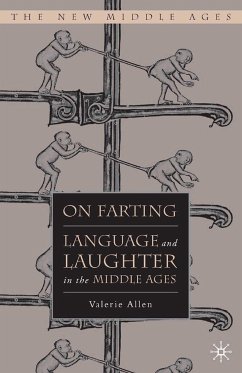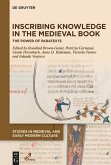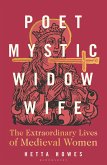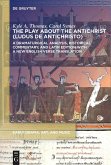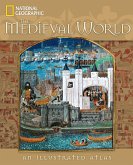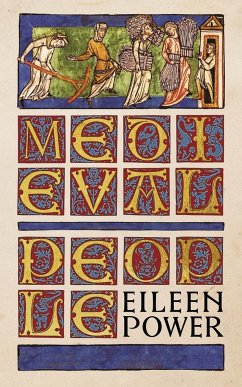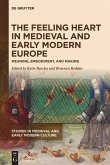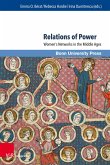This book presents waste as an aesthetic category that introduces an arsy-versy world where detritus is precious. This aesthetic is applied in the second part to etymology, poking through the 'paternal dungheaps' of words, and tracing their origins not to Eden but to Babel, puns, and word play.
'Allen has written the secret history of waste from the Ancient to the early modern world, and - dare I say it? - the hidden history of humankind's relation to the anus. On Farting, in the line of Norbert Elias's Civilizing Process or Erik Erikson's Young Man Luther, begins small and spreads like wind to almost every area of personal, social, and even spiritual life in what is a truly original and significant work of cultural analysis. This is a book with a huge sweep - from the folklore of the fart, to popular and canonical literary works, to the upper reaches of Aristotle and Dante. Allen writes with such a combination of wit, imagination, and erudition that scholars will wonder, 'Why didn't I think of that?' and the more general reader will be drawn towards a vision of the past that is lively, courageous, and profound.' - R. Howard Bloch, Sterling Professor of French, Yale University
'Allen takes the fart seriously, refusing to see it either as a marker of abjection or as mere rudeness but also managing to tread the fine line between the portentous and the jeu d'esprit. The book is witty and learned: a tour de force of scholarship and cultural history. The tone is perfectly judged. Allen argues for the fart as a threshold between nature and culture, audible and smellable, and therefore material and bodily, but also roguishly invisible: a challenge to the primarily visual emphasis of contemporary culture. Allen's book savours the power of the fart to call in question not only the canons of good taste but bad taste too, transmuting the whiffy and ineffable into the fresh and audible.' - Ruth Evans, Professor of English, University of Stirling, Scotland.
'Gifted with a prodigious vocabulary, Allen is equally gifted with an expository style at once pristinely rigorous and utterly reader-friendly. The key is its generosity, what the ancients and medievals would have understood as its liberality or largesse. She writes with such largesse: of information, clarification, good sense, sweet humor, and abiding sympathy with what it means to be human - unfailingly and unstintingly magnanimous. Her years of reading in an unexpectedly vast array of medieval and early modern materials that show an endless fascination with understanding the bowels of humanity has provided her with a body of evidence that, like the body they and she write about, is full of an afflatus that careers deliriously and deliciously between oracular inspiration and fundamental analysis - when you read this book, I promise you, you are going to see some amazing shit.' - R. Allen Shoaf, author of Chaucer's Body, co-founding editor of Exemplaria
'This is a volume which will be profitably consulted by all those interested in the philosophy, art, medicine and literature of the Middle Ages.' - Peter Smith, Times Higher Education Supplement
'Her [Allen's] writing is quaint, witty, naughty, learned, and playful. She refuses to make her ripe and odorous subject arid and dull. The language is a delight.' - Reviews in History
'Her [Allen's] tone is well judged and should not deter even squeamish readers, and her style is marked by a good dry sense of humour...heartily recommended as one of the most original and important medieval cultural histories to have appeared for years' - Ebbe Klitgard
'Allen takes the fart seriously, refusing to see it either as a marker of abjection or as mere rudeness but also managing to tread the fine line between the portentous and the jeu d'esprit. The book is witty and learned: a tour de force of scholarship and cultural history. The tone is perfectly judged. Allen argues for the fart as a threshold between nature and culture, audible and smellable, and therefore material and bodily, but also roguishly invisible: a challenge to the primarily visual emphasis of contemporary culture. Allen's book savours the power of the fart to call in question not only the canons of good taste but bad taste too, transmuting the whiffy and ineffable into the fresh and audible.' - Ruth Evans, Professor of English, University of Stirling, Scotland.
'Gifted with a prodigious vocabulary, Allen is equally gifted with an expository style at once pristinely rigorous and utterly reader-friendly. The key is its generosity, what the ancients and medievals would have understood as its liberality or largesse. She writes with such largesse: of information, clarification, good sense, sweet humor, and abiding sympathy with what it means to be human - unfailingly and unstintingly magnanimous. Her years of reading in an unexpectedly vast array of medieval and early modern materials that show an endless fascination with understanding the bowels of humanity has provided her with a body of evidence that, like the body they and she write about, is full of an afflatus that careers deliriously and deliciously between oracular inspiration and fundamental analysis - when you read this book, I promise you, you are going to see some amazing shit.' - R. Allen Shoaf, author of Chaucer's Body, co-founding editor of Exemplaria
'This is a volume which will be profitably consulted by all those interested in the philosophy, art, medicine and literature of the Middle Ages.' - Peter Smith, Times Higher Education Supplement
'Her [Allen's] writing is quaint, witty, naughty, learned, and playful. She refuses to make her ripe and odorous subject arid and dull. The language is a delight.' - Reviews in History
'Her [Allen's] tone is well judged and should not deter even squeamish readers, and her style is marked by a good dry sense of humour...heartily recommended as one of the most original and important medieval cultural histories to have appeared for years' - Ebbe Klitgard

